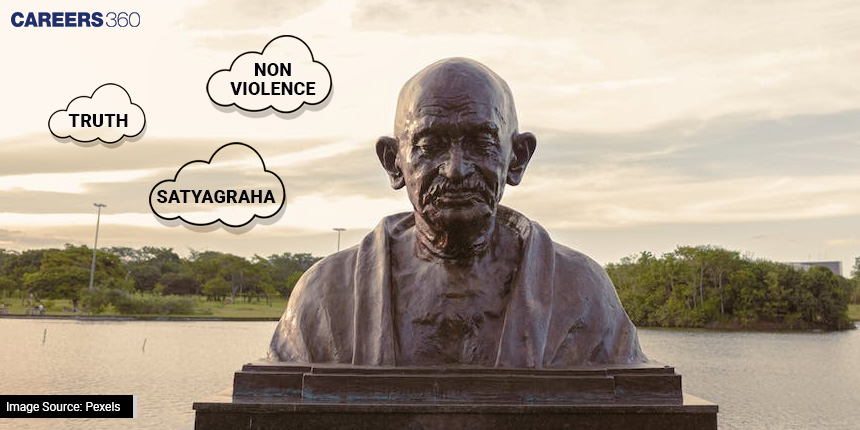Gandhian Principles Can Aid Mental Well-Being
A state of good mental health is important for a happy and satisfied life. If you are mentally satisfied, you will have a better life and will stay more productive at your work. As per a report by WHO, the economic loss in India owing to mental health issues is predicted to be USD 1.03 trillion between 2012 and 2030.

Lack of emotional support, exposure to violent content, and pressure to fit in are major causes that are escalating the mental health issues of individuals.
But did you know the old age principles of Mahatma Gandhi could give the much-needed confidence to manage mental health in this modern era?
Let us look at how Gandhi's teachings, perspective and experiences can guide us in having a stable and peaceful mind.
Also Read-Ancient Practices That Can Help Maintain Good Mental Health
Experiences Of Gandhi Relevant In Modern Day World
Staying True To Yourself
Gandhi started his journey as a law student in England. However, his constant effort to behave like an Englishman over the years brought nothing but unhappiness. With this, he learnt that individuals should only be true to themselves.
This experience of Gandhi can be compared with present-day issues of disturbing mental health. The current generation seeks constant validation. They force themselves to act and behave in a way that is not even true to themselves. When they constantly look for the approval of others they are never content. This later becomes the major reason for our unhappiness leading to poor mental health conditions.
Accepting Your Flaws
Gandhi said that he was perfectly aware of his flaws. He knew his strengths and weaknesses quite well. This self-realisation is very important in the current scenario. We often overestimate or underestimate our capabilities. This either leads to fallout or not even trying to make things work out. It can affect our confidence and affect our mental health.
Gandhi’s Principles And Its Context With Mental Health
Truth
Truth was a crucial principle for Gandhi. Truth in the context of mental health refers to self-awareness and acceptance of one's emotional situation. To treat mental health issues, individuals must be encouraged to be honest with themselves and seek help when necessary.
Non-Violence
Gandhi's commitment to nonviolence can be applied to mental health issues. His principles encourage nonjudgmental attitudes and peaceful means of addressing issues. It encourages empathy and sympathy for persons suffering from mental illnesses.
Satyagraha
Gandhi considered satyagraha to be a loving and unselfish attitude that connects us to others. The Gandhian principle of satyagraha advocates the virtues of patience, understanding, and tolerance of difficulties without being self-centred. When we apply satyagraha in today's scenario we will be more cooperative and less selfish. Difficulties are a part and parcel of life. If we accept them as a phase of life we will be less stressed.
Also Read-How School Kids Can Stand Up Against Bullies
Gandhi's Principles and Mental Health
Community Support
Gandhi Ji believed in the welfare of all. He believed that building support networks within communities can provide a sense of belonging and understanding for individuals. His perspective of community support can be applied to modern-day mental health issues. This in turn fosters an environment where seeking help is encouraged and stigma is reduced.
Meditation And Exercise
Gandhi ji believed in exercise and meditation. Maintaining harmony between body and mind is good for physical and mental health. Regular exercise, a balanced diet, and mindfulness practices contribute to overall mental well-being.
Strengthening Family Bonds
Support of family and loved ones is much needed during tough times. Gandhi's support for strong family relationships is timely in a society where family patterns are changing. Promoting stable family relationships provides critical emotional support for persons suffering from mental illnesses.
Also Read-Why Are Careers In Astrophysics And Astronomy Booming In India?
Mahatma Gandhi's ideas of simplicity, truth, and nonviolence provide perspective on improving mental health in India. The current generation can establish a culture where people are encouraged to ask for help, and supported by each other.
Articles
Upcoming Exams
Application Date:05 September,2024 - 25 November,2024
Application Date:15 October,2024 - 15 January,2025
Application Date:10 November,2024 - 08 April,2025